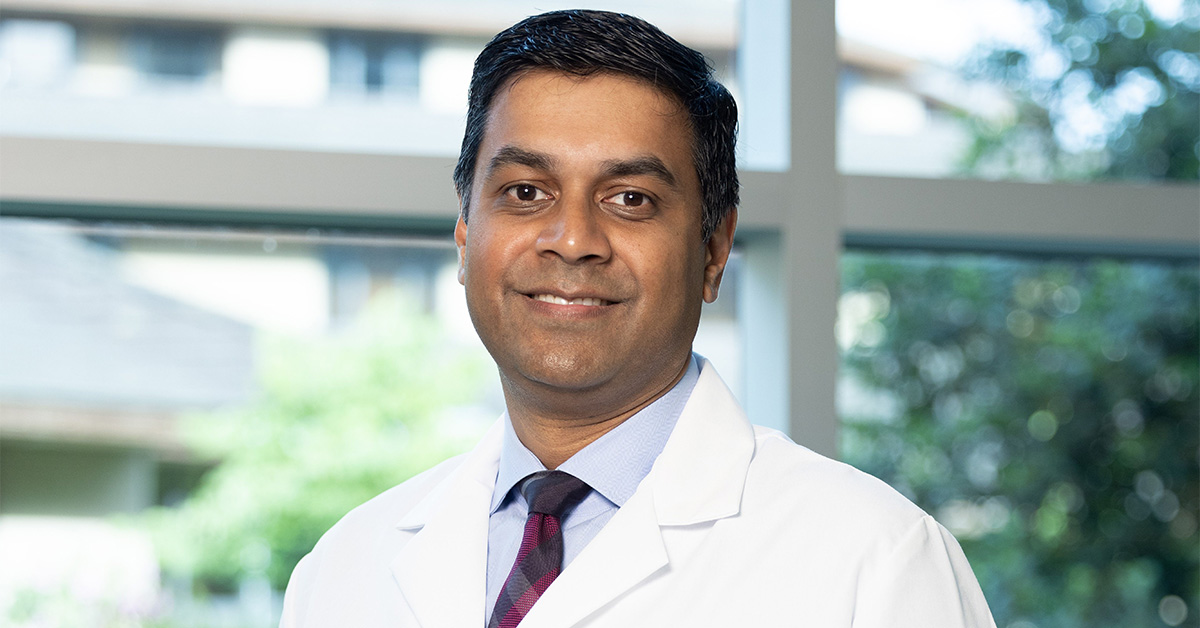
PHILADELPHIA (May 2, 2023)—Jay Simhan, MD, FACS, Vice Chair of the Department of Urology and Director of Reconstruction and Prosthetics at Fox Chase Cancer Center and Temple Health, presented two studies related to the surgical treatment of erectile dysfunction at this year’s American Urological Association Meeting (AUA) 2023 Annual Meeting.
For men with erectile dysfunction who have not responded to other types of therapy such as pills or injections, the next step can often be surgical treatment. In a study titled, “Intracavernosal Injections History is Associated with Increased Intra- and Postoperative Inflatable Penile Prosthesis Complications,” Simhan and colleagues examined how the use of penile injections affects future penile implant surgery.
“The types of surgery related to erectile dysfunction often involve what’s called a penile implant. It restores the ability to have an erection and puts the patient in control,” said Simhan.
Penile implants are devices that are surgically inserted in the penis to allow men with erectile dysfunction to obtain an erection. These implants are typically used in patients for whom pills such as Viagra or penile injections were not successful. Penile injections contain drugs that work in a way that is similar to erectile dysfunction pills. Once the drug has been injected, it produces an erection that can last for about 30 minutes.
The first study looked at thousands of implant surgeries that were done over a six-year period by 16 surgeons. Specifically, the researchers looked at outcomes after patients received penile injections and then underwent penile implant surgery. “We compared those cases to individuals who did not undergo those treatments,” he said.
Simhan said the study showed that repetitively using penile injections causes micro-trauma that risks the surgical outcome of the future penile implant. By using these injections, he said, the chances of complications during the future surgery increased significantly.
Simhan will also be presenting a second study titled, “New Findings Regarding Independent Predictors of Poor Corporal Integrity in a Large Series of Penile Implant Recipients: A Multicenter International Investigation.” This study is also based on findings from thousands of patients with penile implants, but it focuses on cases in which a patient developed rare complications from the implants.
“In some cases, the implant pokes through the penis instead of staying within it. In these rare cases, it can invade the urethra, which affects urination,” said Simhan. Results of their study showed that individuals who smoked, had coronary artery disease, or who had a prior penile implant that was removed due to infection were more likely to experience these uncommon complications, said Simhan.
At this year’s meeting, Simhan, who has served as chair of the AUA Young Urologists Committee over the past year, also participated in a panel discussion on challenging cases with the Society of Genitourinary Reconstructive Surgeons.
“I believe that being an active researcher allows me to offer patients the most up-to-date treatments for their reconstructive problem,” said Simhan. “That’s why I am excited to bring these findings to the AUA meeting and share information that may be helpful to future patients and physicians.”